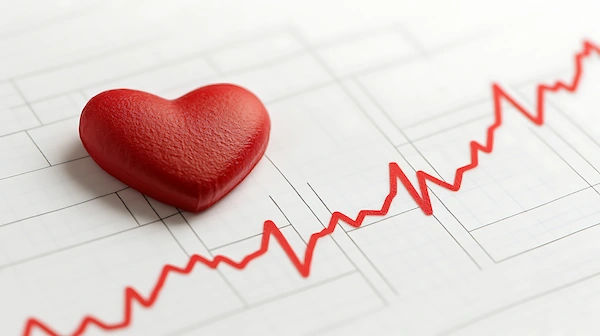- male
- 50 Years
- 20/02/2025
I've just gotten my cholesterol test results back, and I'm a bit concerned about what they mean. My Total Cholesterol is at 155 mgdl, Triglycerides at 193 mgdl, HDL at 29 mgdl, VLDL at 39 mgdl, LDL at 87 mgdl, with a TCholHDL ratio of 5.3 and an LDLHDL ratio of 3.0. Can you help me understand these numbers and suggest what steps I should take? I'm not sure if these levels are something to worry about, and I'd appreciate any advice on how to handle this.
Answered by 1 Apollo Doctors
Your cholesterol report shows a total cholesterol of 155 mgdL, which is normal, but triglycerides are elevated at 193 mgdL, indicating a potential risk for heart disease. Your HDL ("good cholesterol") is low at 29 mgdL, which is concerning, as higher HDL helps reduce heart disease risk. Your LDL ("bad cholesterol") is at a good level of 87 mgdL, and your VLDL and cholesterol ratios are slightly elevated due to the low HDL and high triglycerides. To improve your cholesterol profile, focus on a healthy diet rich in healthy fats (like omega-3s), fiber, and whole foods, while cutting back on sugary and processed foods. Exercise regularly, aim for weight management, avoid smoking, and limit alcohol. Its also important to discuss these results with your doctor, who may recommend further testing or medications, especially considering your history of heart attack. Regular follow-ups will be important to manage and track your progress.
Dr. Shubham Suggests...
Consult a Cardiologist
Answered 25/07/2025
0
0

More Cardiology Health Queries
View allI'm really worried because ever since I had COVID, my pulse rate has been around 100 and I've been experiencing palpitations. My doctor suggested I get an echocardiogram done, and I've attached the report here. Can you tell me if everything looks normal? I'm particularly concerned about the mention of trivial tricuspid regurgitationdoes that need treatment?
Trivial TR is a normal finding in healthy heart. Your echo is normal. Post covid palpitations are also seen in many patients. However if the symptoms are severe enough, you may need some medication.
Answered by 1 Apollo Doctors
Can you explain what my ECG report indicates about my heart? The report says "unconfirmed diagnosis," and I'm not sure how concerned I should be. Is this something serious?
Advised repeat ecg and cardiac markers.
Answered by 1 Apollo Doctors
I've been having chest pain on the left side for about a year now. I've done all sorts of tests like ECG, echo, and TMT, and they all came back normal. For more clarity, I even had a CT coronary angiogram done. I've attached the frame and report here. Could you please take a look and let me know what's going on?
It is possible that you may be experiencing musculoskeletal pain or other non-cardiac causes of chest pain. To help alleviate your symptoms, you can try taking over-the-counter pain relievers such as acetaminophen (Tylenol) as needed. Additionally, practicing relaxation techniques and maintaining good posture may also be beneficial. If your symptoms persist or worsen, please follow up with your healthcare provider for further evaluation and management.
Answered by 1 Apollo Doctors
Disclaimer: Answers on Apollo 247 are not intended to replace your doctor advice. Always seek help of a professional doctor in case of an medical emergency or ailment.


.webp)
